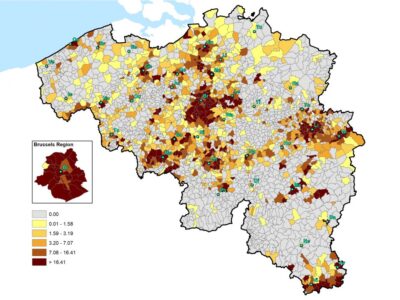Mélanie Bourguignon wins Tamara Hareven Award for best PhD
At the recent European Society for Historical Demographics Conference in Nijmegen, EPIBEL researcher Mélanie Bourguignon won the Tamara Hareven Award for best PhD in Historical Dempography with her work titled Fécondité et régimes démographiques au 19e siècle dans les campagnes du sud de la Wallonie - many congratulations!
